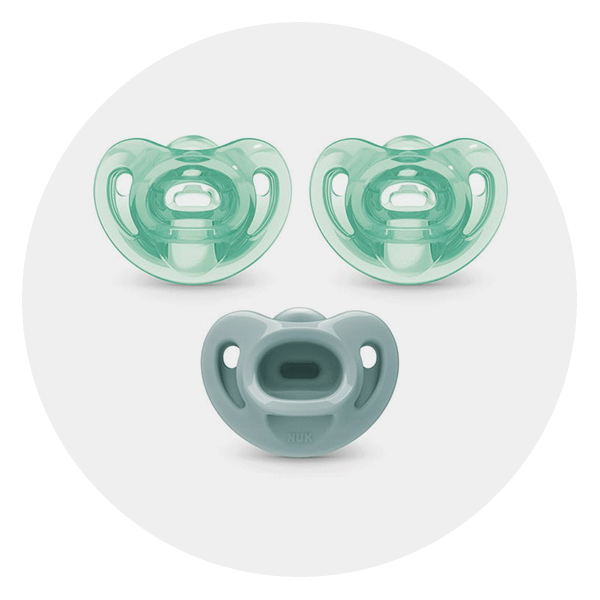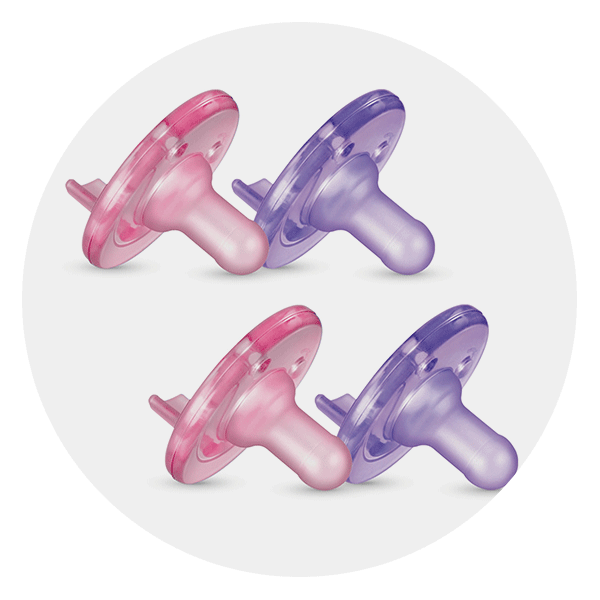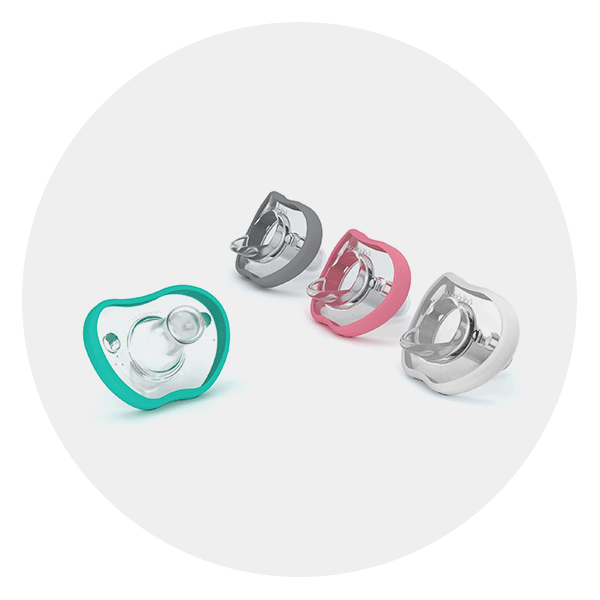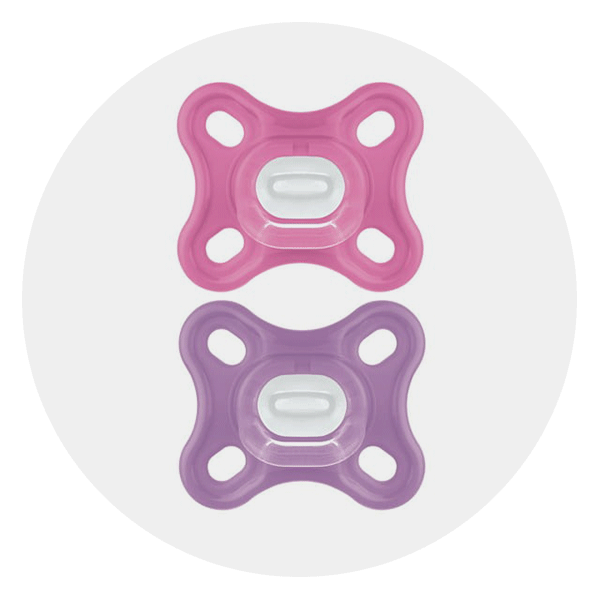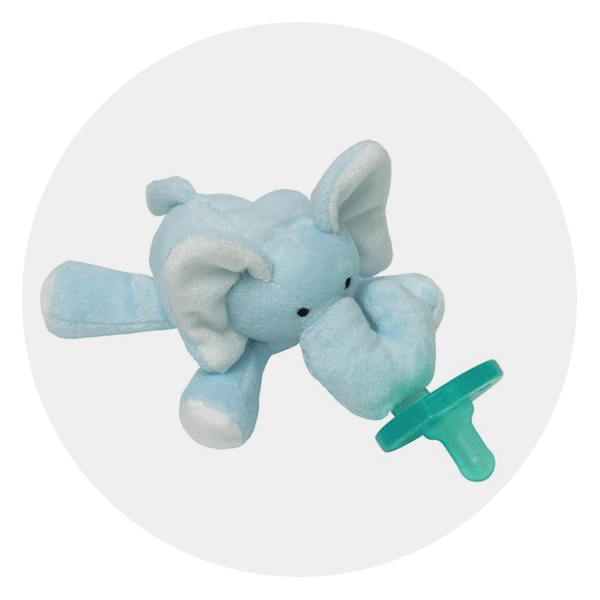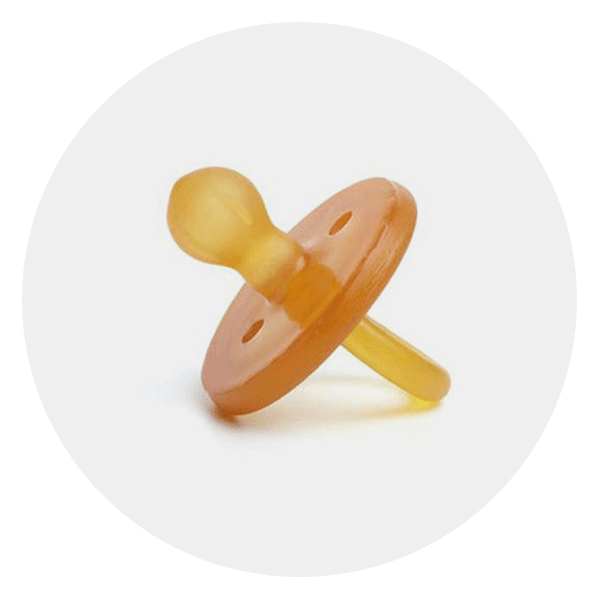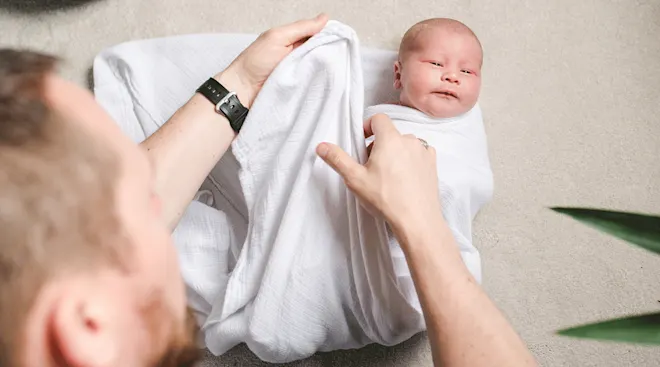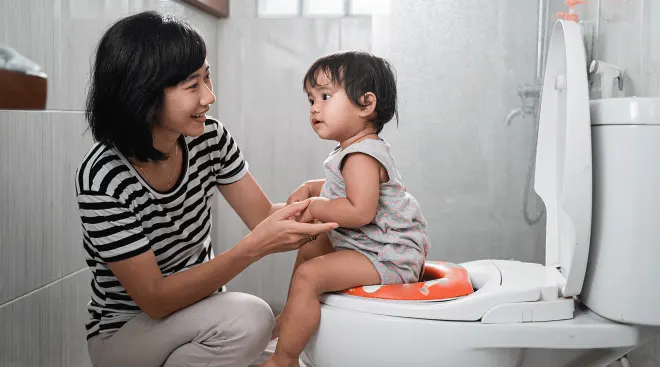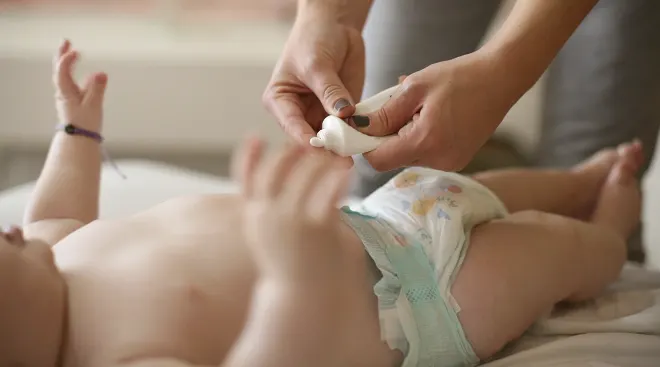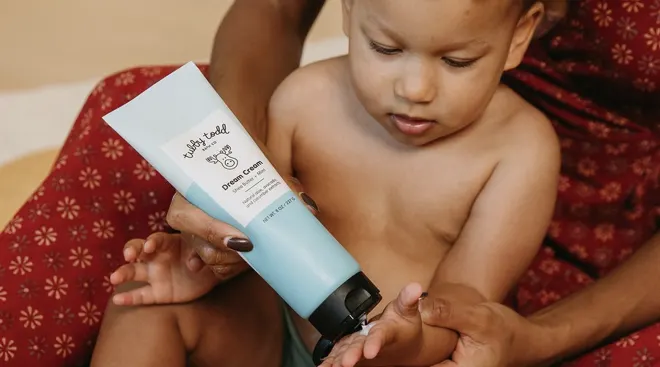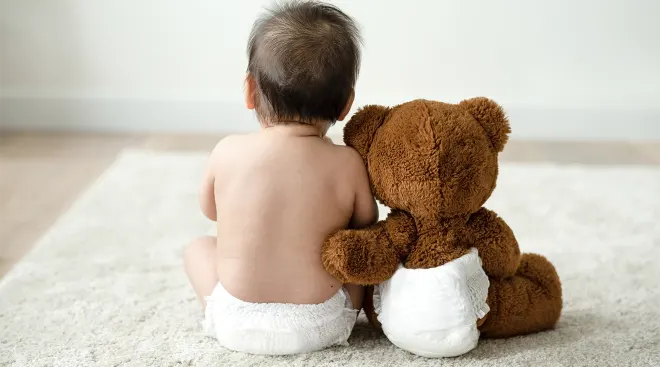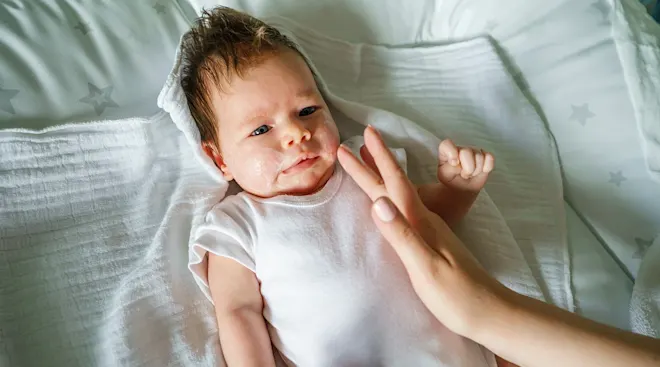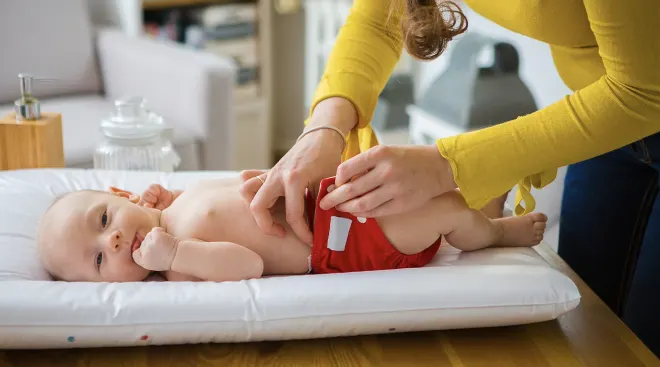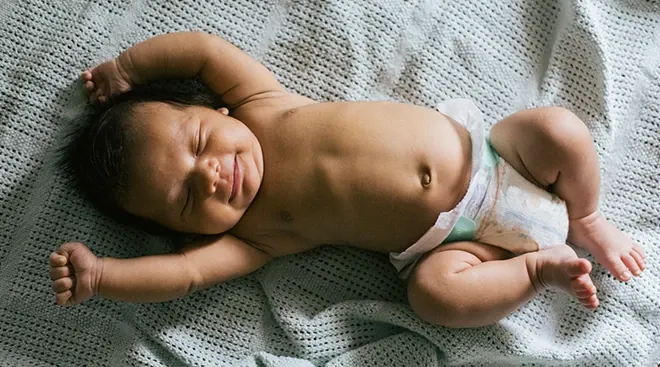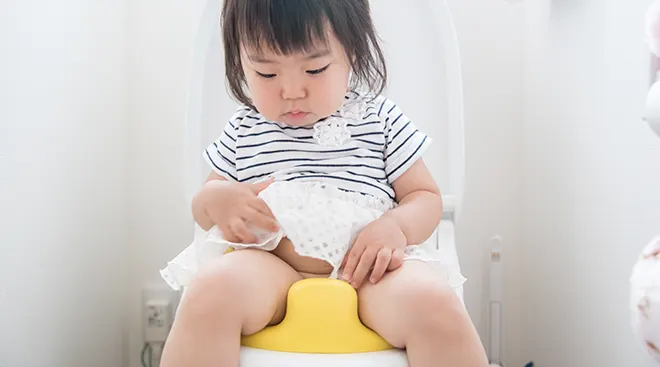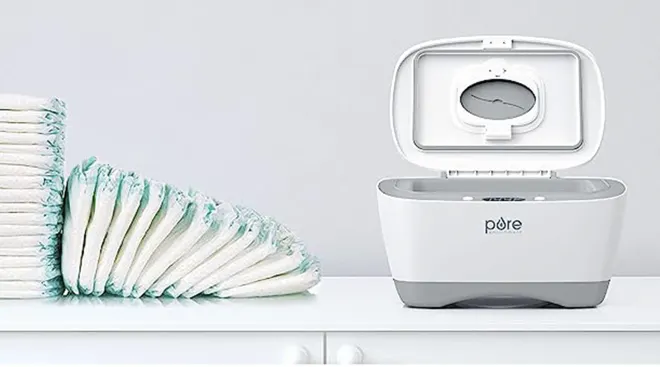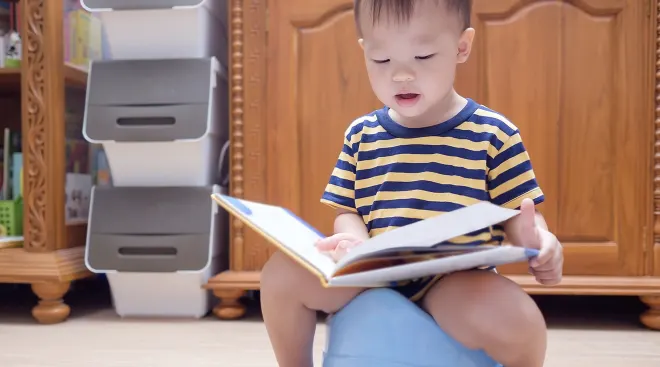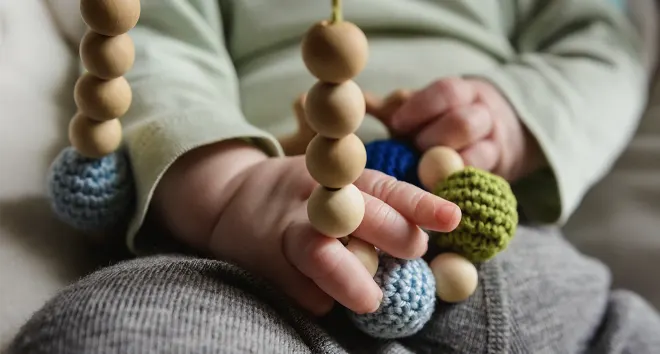The Best Pacifiers to Soothe Your Little One
In a nutshell:
Based on expert advice and survey feedback from over 300 members of The Bump community, we chose the NUK Comfy Pacifier as the overall best pacifier, due to its breastfeeding-friendly design, orthodontic nipple and safe construction.
When I was expecting my first child, it felt like I was faced with endless decisions: midwife or ob-gyn, breast- or bottle-feed, crib or co-sleeper? Even smaller choices—like whether or not to use a pacifier—felt fraught. But once my partner and I had weighed the pros and cons and opted to try giving baby a pacifier, we were faced with an overwhelming number of options. Search around online or stroll down the aisle of your local baby store and you’ll see what I mean. There’s a wide selection of baby binkies, all claiming to be the best pacifiers on the market. How is a bleary-eyed new parent supposed to choose? And how much does it even matter?
“Pacifiers can be an excellent aid to soothe a crying or fussy baby, but choosing the right one is key to promoting proper oral development,” says board-certified pediatrician and lactation consultant Mona Amin, DO. I asked Amin, along with pediatric dentist Liel Grinbaum, DMD and Scott Cashion, DDS, MS, president of the American Academy of Pediatric Dentistry (AAPD), to weigh in on what parents should look for in a pacifier. Read on to find out what they said and to shop our picks, from the best newborn pacifier to teething-friendly pacifiers and every type of binky in between.
“Pacifiers come in all shapes, sizes and materials,” says Grinbaum—something I knew from my own experience, and which is even more true now than it was when my kids were infants. So how did we narrow down the many pacifiers on the market and decide which ones to include in this roundup?
- In May of 2023, we surveyed over 300 parents in The Bump community, and asked them to tell us about their favorite pacifiers. We took their comments (some of which are included below) into consideration when crafting this list.
- We consulted with pediatric dentists and pediatricians to find out what to look for in a top-quality pacifier.
- We adhered to safety guidelines from the American Academy of Pediatrics (AAP). In keeping with these guidelines, we only considered one-piece pacifiers.
- We browsed options from an array of leading baby brands and trusted online retailers, considering factors such as product size, nipple size and shape, value, number of pieces, material, specialty designs and how easy they were to clean.
- To get a better idea of how these pacifiers worked for real families, we read user reviews and didn’t consider any with less than an average four-star rating.
Editorial integrity is at the heart of everything we publish. Read about how The Bump develops and reviews all articles, including product reviews.
Overall best pacifier
- Heart-shaped for easy breathing
- Affordable
- May be too heavy for infants under 3 months
This pacifier is one of the most popular choices among seasoned parents—and a favorite of Grinbaum. “NUK pacifiers are a great option, as they are shaped to prevent changes to the oral structures but also replicate the shape of a human nipple when pressed between the baby's lips and palate,” he explains.
The orthodontic shape of this nipple is ideal for healthy oral development, and the scoop-shaped nipple cavity allows for lots of tongue movement. The NUK is a silicone pacifier that’s BPA-free, and comes in some really cute designs. We like the multi-packs that feature a mix of glossy and matte pacifiers.
Material: Silicone | Nipple shape: Orthodontic
“This pacifier is much more stylish than most other brands. It’s also effective and a good size so it does not easily fall out.” - Leah, mom of an infant
Best pacifier for newborns
- Orthodontic design
- Silicone on next size up is harder
- Some colors are difficult to find
Many hospitals use the Philips Avent Soothie in their nurseries and send new parents home with them—and for good reason. It’s specifically designed for newborns up to 3 months and is an easy, inexpensive option. Made from hospital-grade, BPA-free silicone, this newborn pacifier is also dishwasher-safe, so keeping it clean is a breeze.
Material: Silicone | Nipple shape: Round
“It’s great for a breastfeeding baby.” – Marissa, mom of an infant
Best pacifier for preemies
- Helps foster sucking reflex
- Small and lightweight
- Notched design
- Pricier than other options
The Philips Notched Soothie is designed specifically for premature babies who may find it hard to handle a newborn-size pacifier. You can essentially consider it the Soothie junior—infants born over 34 weeks gestation can use it from day one. The unique notched design allows room for mechanical ventilation or tube feeding within a neonatal intensive care unit (NICU) setting. Its low profile also helps keep the pacifier in baby’s mouth if they flail, which is common with preemies. It’s BPA-free and manufactured without phthalates or natural rubber latex, which gives peace of mind when you’re trying to soothe such a small baby.
Material: Silicone | Nipple shape: Round
Best pacifier for breastfed babies
- Soft and flexible design
- Comes in affordable multipacks
- Stage 2 is better for mobile babies
- No hole to attach a clip
Experts recommend waiting until breastfeeding is firmly established before introducing a pacifier. But once mom and baby have a strong nursing routine in place, the Nanobébé Flexy is the best pacifier to try out first. It’s made from a single piece of silicone that’s BPA- and phthalate-free. And as the name suggests, it's super-supple and malleable—providing what Nanobébé calls “mom-like softness” that works to prevent nipple confusion in breastfed babies. Plus, the ergonomic and vented design curves around baby’s nose and chin to keep it comfortably in place, whether they’re resting or wide awake.
Material: Silicone | Nipple shape: Orthodontic
“Easy to clean and sanitize. Plus, it’s all one piece so there’s nowhere for water to get trapped and build mold.” – Chloe (note: name has been changed), mom of a one-year-old
Best pacifier for bottle-fed babies
- Dishwasher and sterilizer safe
- Lightweight and soft
- Best for use with Dr. Brown's bottles
- May be too big for newborns
If breastfed babies can warm up to a pacifier that mimics a natural nipple, then it wouldn’t be too far off-base to say that bottle-fed babies would prefer a pacifier that’s like their bottle, right? That’s exactly what makes Dr. Brown’s HappyPaci so well-loved by parents and discerning infants alike. The pacifier is shaped like the brand’s bottle nipple, and features a contoured butterfly shaped shield that won’t block baby’s nose and curves away from their face for additional comfort. With its one-piece construction, cleaning is a cinch and choking risks are minimal. The pretty pastel color options don’t hurt either.
Material: Silicone | Nipple shape: Round
Best pacifier for sensitive skin
- BPA- and phthalate-free
- Curved design equals less skin contact
- Some babies may not prefer the shape
Pacifiers come in clutch at times when baby is inconsolable, but they can cause their own issues. Lots of sucking produces lots of drool, and when the pacifier is flush up against baby’s face for long periods of time, the moisture build-up can cause skin flare-ups and irritation. Fortunately, the Tommee Tippee Ultra-Light Silicone pacifier has unique design features to help combat this problem. The shield curves away from baby’s face, and extra-large holes on the sides allow extra air flow and prevent moisture buildup. But the best part? A graduated system for two-age stages. Their 0 to 6 month size boasts a smaller teat and shield for little mouths and noses, while the 6 to 18 month step-up offers the same great benefits but with larger nipples and shields.
Material: Silicone | Nipple shape: Symmetrical
Best pacifier for teething babies
- Durable food-grade silicone
- BPA-free
- Dishwasher safe
- Silicone may attract dust
The Munchkin Sili-Soothe & Teethe pacifier is a life-saver for parents with teething tots in the house. Have you seen your red-cheeked little one drooling or chewing through pacifiers? This multi-tasking binky is easy on sore gums and offers soothing relief thanks to the unique ridges. The textured pacifier boasts a one-piece design and is made from 100 percent food-grade silicone. Finally, a pacifier that encourages gnawing!
Material: Silicone | Nipple shape: Round
Best pacifier for reluctant babies
- Supports natural sucking behavior
- Symmetrical shape
- Recommended for babies under 6 months
- Some parents reported a strong chemical smell
When it comes to the best pacifiers for babies, comfort is key. Trust us, if it doesn’t feel right in baby’s mouth, your little one will spit it out at every turn. Bleh! Rest assured, this Best of Baby award-winning pacifier was designed with comfort in mind. MAM’s Comfort range for newborns relies on a lightweight design with an extra small nipple that satisfies most babies. Its soft and flexible nipple minimizes the impact on baby’s oral development—which is helpful to know, as the symmetrical shape is known to be so comfortable, baby won’t want to give it up. The curved shield is gentle on sensitive skin and the clever ventilation provides optimal air-flow that prevents saliva build-up and rashes.
Material: Silicone | Nipple shape: Orthodontic
“Our baby didn't love the Phillips Avent ones in the hospital but took to the MAM options right away. They're quite durable and many come with a sanitizing case.” – Laura, mom of an infant
Best pacifier for tongue-tied babies
- Comes with a lovey toy
- BPA-, PVC- and phthalate-free
- Lovey is machine-washable
- Higher price point
- Despite attached toy, pacifier is single-piece
- Some models have detachable loveys
Babies who are tongue-tied have restricted movement and a high palate, which can make it harder to suck. And just as their shallow latch can impact their ability to feed easily, it can also make them less likely to hold onto a pacifier. That’s what is so great about the iconic WubbaNub: It has a rounded nipple that can be helpful in teaching babies how to suck after their tongue-tie is corrected. Plus, the attached plushie is the perfect size and weight for little hands to grab and hold in place.
Material: Silicone | Nipple shape: Round
“I love that it’s attached to a toy. My baby loves the toy and is now using the pacifier as intended instead of a teether.” – Annemarie, mom of an infant
Best eco-friendly pacifier
- Durable natural rubber
- Paraben-, phthalate-, BPA- and plastic-free
- Higher price point
- May be too large for newborns
If you’re looking for the ultimate Earth- and baby-friendly option, add Ecopiggy’s Ecopacifier to your shopping list. Made of 100 percent pure rubber that’s sustainably grown in Malaysia, the Ecopacifier contains no chemical softeners or colorants, both of which are often found in silicone baby pacifiers. The Ecopacifier comes with your choice of rounded or orthodontic nipples, both of which are attached to a round shield. And get this: It’s biodegradable.
Material: Rubber | Nipple shape: Round
Best silicone pacifier with a handle
- Available in multiple sizes
- Soft handle for baby to grab
- Easy to attach to a clip
- Heavier than other pacifiers
- Tacky texture attracts lint
One-piece silicone pacifiers with handles are few and far between, which is one reason why this pick’s a winner in our book. The PhysioForma range was developed by a panel of leading neonatologists, pediatricians and orthodontists—and this particular design helps position baby’s tongue forward to maintain an open airway. The lightweight pacifier boasts an orthodontic nipple and a perfectly sized handle that’s securely molded to the base. Plus, ventilation holes and a cutout for baby’s nose helps them breathe easily.
Material: Silicone | Nipple shape: Orthodontic
Best travel pacifier
- PVC-, BPA-, latex- and phthalate-free
- Nipple retracts when dropped
- May want to attach to a clip just in case
It’s pretty much inevitable that baby pacifiers are going to fall on the ground, which is why Doddle & Co.’s Pop silicone pacifier is so exciting. Designed by two city-dwelling moms who weren’t sure how to sanitize binkies on the go, the Pop nipple retracts into its silicone bubble when dropped, meaning it doesn’t come in contact with dirty surfaces. It's like having a built-in case—genius! Of course, even the most hygienic pacifier still needs to be washed on the regular, which is why this one is dishwasher-safe. The Pop features a rounded nipple and is ideal for children ages 0 to 6 months.
Material: Silicone | Nipple shape: Round
The truth is, baby will have the final say in which pacifier they’ll tolerate when the going gets tough. But there are a few important things to keep in mind when you’re deciding which ones to offer. Consider factors like your child’s age and whether you’ve been breast- or bottle-feeding them (or what you’re planning for the future). Then choose a selection of pacifiers that aligns with what they’re already used to. (If you’re nursing, you can also enlist the help of a lactation consultant for suggestions on the best pacifiers.) In terms of the pacifier itself, you’ll want to look for the following:
- One-piece construction. Grinbaum urges parents to favor one-piece pacifiers: “You want to make sure that the material is one-piece and sturdy to prevent any choking risks,” he explains. The AAP agrees, advising parents to look for a one-piece model with a soft nipple. One-piece pacifiers also have the benefit of being easier to clean; multi-piece pacifiers can get water and soap trapped in the nipple.
- Size. Pacifiers aren’t a one-size-fits-all accessory. If you’re buying a pacifier for a newborn or an infant under 6 months, you’ll want to prioritize options that are small and not too bulky, so they don’t overwhelm baby’s little mouth. You also don’t want it to be so small that it poses a choking hazard. The AAPD’s policy on pacifiers recommends options with a shield that’s at least 1.5 inches across. Babies who are older can take a pacifier with a larger silhouette. “The size of the whole pacifier can also be a health hazard concern,” says Grinbaum. “If the shield around the silicone is too small, the baby can insert it whole into the mouth. Alternatively, if the shield is too large it can cover the nose and cause a breathing hazard. It is imperative to check the manufacturer’s recommendations for sizing.”
- Orthodontic nipples. There are a bunch of different pacifier shapes to choose from, but Cashion notes that for parents who plan to use pacifiers, the AAPD recommends orthodontic nipples. “This type of pacifier is specifically designed with baby’s developing teeth in mind,” says Cashion, “as the shape of the nipple is designed to support the developing jaw. Orthodontic pacifiers also help to reduce misalignment that can be caused by traditional round pacifiers.” Grinbaum agrees, telling us, “The rounder a pacifier tip is, the more it will lead to a narrowing palate, protruded and open anterior bite, and a cross-bite in the back teeth." That being said, babies can be picky about what kind of pacifier they’ll accept; rounded nipples may be too big for some babies and make them gag, while orthodontic nipples may be too thin for others and feel awkward in their mouth. Even just the nuances between a glossy and matte nipple can influence baby’s decision one way or the other. The AAP recommends trying a number of different nipples and seeing what baby prefers.
Once you’ve narrowed down your options, stock up on baby’s top pick, because pacifiers have a universal tendency to disappear—particularly when you need one the most. We suggest buying at least four to six pacifiers to get started. Be sure to bring at least two pacifiers whenever you and baby head out of the house, in case one drops or gets lost. If you live in a multi-level home, keeping one or two on every floor and in easy rotation is another smart strategy.
Having a variety of pacifiers at home also helps baby become more tolerant of different types—because favorites do get lost every so often. Some brands even have sampler packs that let you test-run a few different designs. And even when you’ve found the one baby takes to, Amin cautions that finding the best pacifier is an ongoing task. “It’s essential to swap baby’s pacifier as they grow,” she tells us. “Pacifiers are offered in different age ranges to ensure the materials, shape and size of the pacifier support baby’s oral development.”
All that said, sometimes no matter how many different types and sizes of baby pacifiers you try, baby simply isn’t interested. This ended up being the case with both of my daughters—after all our wrestling with whether or not to give them pacifiers, and which ones to try! If your infant is spitting out their binky time and time again, the AAPD says not to force it. Eventually, they’ll develop an alternate way to self-soothe.
Please note: The Bump and the materials and information it contains are not intended to, and do not constitute, medical or other health advice or diagnosis and should not be used as such. You should always consult with a qualified physician or health professional about your specific circumstances.
Plus, more from The Bump:
Mona Amin, MD, is a board-certified pediatrician based in Florida. She is also a Philips Avent partner and the host of the PedsDocTalk podcast. She received her medical degree from ATSU School of Osteopathic Medicine in Arizona, and completed her pediatric residency at the Bernard and Millie Duker Children’s Hospital in Albany, New York.
Liel Grinbaum, DMD, is a pediatric dentist based in New York City, and a diplomat of the American Association of Pediatric Dentistry, the Academy of General Dentistry and Nassau County Young Dental Society, New York State Dental Association.
Scott Cashion, DDS, MS, is president of the American Academy of Pediatric Dentistry and an adjunct assistant professor at The University of North Carolina at Chapel Hill.
Healthy Children (AAP), Pacifiers and Thumb Sucking, November 2020.
American Academy of Pediatric Dentistry, Policy on Pacifiers, 2022
Navigate forward to interact with the calendar and select a date. Press the question mark key to get the keyboard shortcuts for changing dates.

































